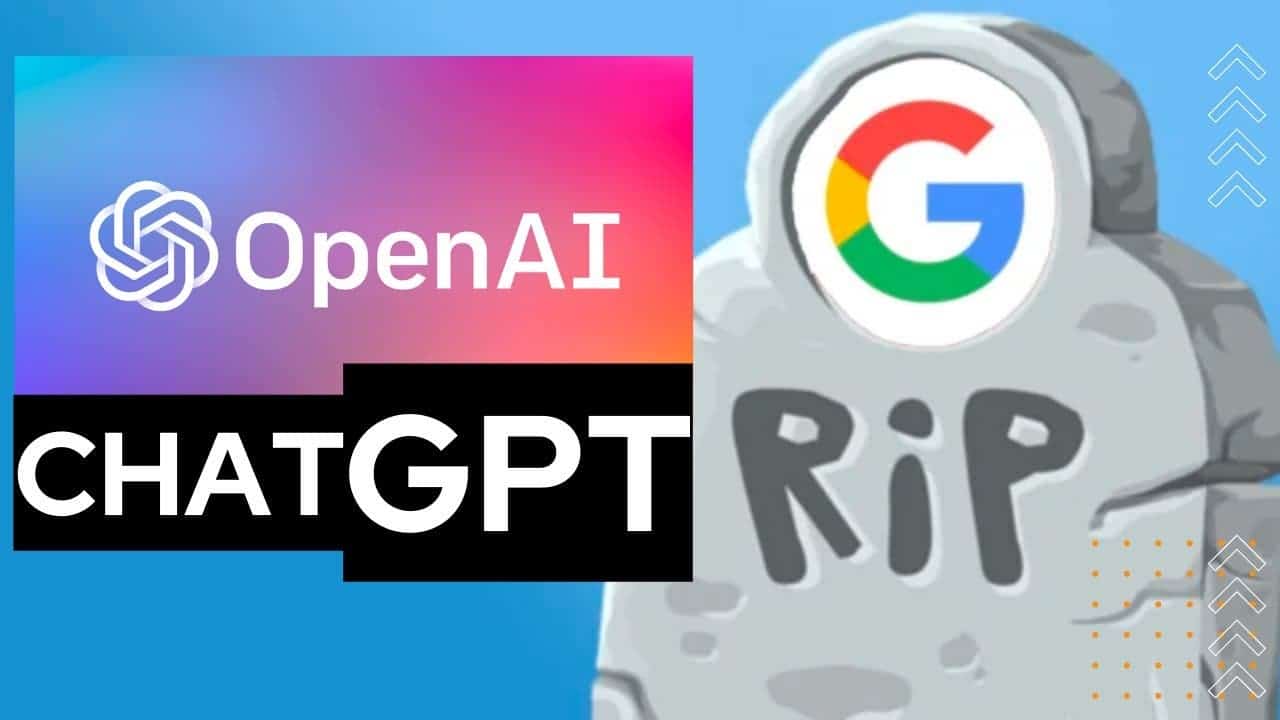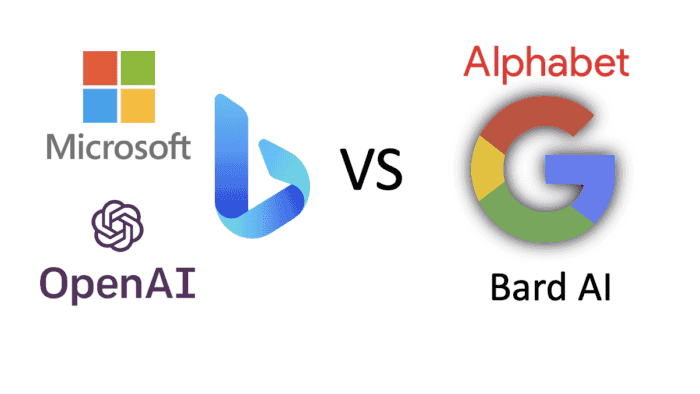Artificial intelligence has been a hot topic for years, and with the emergence of ChatGPT, it seems that the race to dominate the AI industry has intensified. OpenAI and Microsoft have taken the lead in this race by integrating GPT-3.5, the language model behind ChatGPT, into their Bing search engine and web browser, Edge. Additionally, Microsoft plans to integrate this technology into their Office suite, including Word, Outlook, and PowerPoint.
Google vs ChatGPT

Google, on the other hand, has failed to establish itself as a pioneer in this field. Despite having innumerable research projects and strengths, the web giant has lost ground by indefinitely delaying the arrival of its chatbot. Google’s alternative, Bard, based on LaMDA, a powerful language model developed by Google years ago, failed to gain enthusiasm due to a hasty launch punctuated by blunders.
The Wall Street Journal’s investigation into Google’s cautious approach towards AI reveals that the company has repeatedly rejected LaMDA, which was available long before the ChatGPT revolution. Developed by two of its researchers, Daniel De Freitas and Noam Shazeer, the duo wanted to integrate their invention with Google Assistant. Giving Google a huge lead over other smart assistants on the market, and Google Search. However, the company felt that the computer program did not meet its standards for security, and therefore, the model remained confined to the borders of Mountain View.
According to Gaurav Nemade, former Google product manager who worked on AI, “Google is struggling to balance the level of risk it takes with maintaining ethical leadership”. This statement suggests that Google is cautious about entering into the field of AI. Fearing that the slightest misstep could tarnish its reputation in recent years.
In contrast, Microsoft’s ambitious approach to AI has enabled it to take the lead in this race. By incorporating ChatGPT’s technology into their search engine, web browser, and Office suite, Microsoft has shown its determination to establish itself as a pioneer in the AI industry.
Overall, the emergence of ChatGPT has intensified the race to dominate the AI industry. And Microsoft has taken the lead by integrating its technology into various applications. On the other hand, Google’s cautious approach towards AI has prevented it from establishing itself as a pioneer. And its rejection of LaMDA shows that the company is still struggling to balance the level of risk it takes with maintaining ethical leadership.
Google missed the opportunity to lead the AI market and fall behind ChatGPT and Microsoft Bing

Google, under the leadership of CEO Sundar Pichai, implemented strict guidelines for artificial intelligence (AI) in 2018. These guidelines included seven principles, such as respecting privacy and avoiding biases. Pichai also emphasized the importance of testing AI extensively in closed environments before releasing it to limit unforeseen results.
However, despite these guidelines, Google has faced criticism for its approach to AI. In 2021, two researchers, Daniel De Freitas and Noam Shazeer, resigned from Google, disappointed with the company’s approach to AI. They launched their own company, Character Technologies, and developed a chatbot that can converse like famous characters.
Google has also faced controversy over its language model, LaMDA. The company has repeatedly refused to put a public demo of LaMDA online, citing security concerns. In May 2022, Google finally decided to offer a demo of LaMDA at the Google I/O. But controversy over a Google engineer’s comments about the AI’s sensitivity led the company to cancel the demo.
In contrast, Microsoft has sometimes advanced hastily in the field of AI. The company has had to add limits to its chatbot, Prometheus, incorporated into the search engine Bing. Microsoft limited each conversation to a maximum of six questions. And added a button to adjust the chatbot’s personality to prevent it from going off the rails.
Google’s cautious approach to AI may be due to the company’s size and the potential consequences of AI going wrong. While Microsoft has been willing to put its chatbot in contact with internet users, Google has preferred to extensively test its AI in closed environments. However, Google’s caution may also be a missed opportunity. As other companies have taken the lead in the field of AI.
Google Bard future
Google’s highly anticipated release of its language model, Bard, has taken a new direction. Initially, the company intended to focus primarily on online search, similar to Microsoft’s Prometheus. However, recent reports suggest that Google executives are reconsidering this strategy. And are now exploring a multi-functional chatbot model, similar to ChatGPT.
During a meeting organized for its employees in early March, several Google executives. Including Bard’s product manager, Jack Krawczyk, shared their thoughts on the new direction. Krawczyk emphasized that Bard is not just a research tool. But also a creative companion that can serve as a spark plug for the imagination.
The new approach is a significant shift for Google, who has long dominated the online search market. With Bard, Google is now exploring the possibilities of creating a chatbot that can perform multiple functions beyond just online searches.
The decision to shift Bard’s strategy is not surprising, considering the success of other language models, such as ChatGPT. ChatGPT, which was developed by OpenAI, has proven to be highly versatile and capable of performing a wide range of tasks, from generating natural language text to answering questions and even holding conversations.
By following in ChatGPT’s footsteps, Google hopes to develop a chatbot that can not only compete with existing language models. But also offer new and innovative features that set it apart from the rest.
While Bard will still be able to carry out online searches through Google Search, it will also have other functions that are yet to be revealed. The company is expected to release Bard’s first public demo in the near future. Which will give users a glimpse of the chatbot’s capabilities and functionalities.





